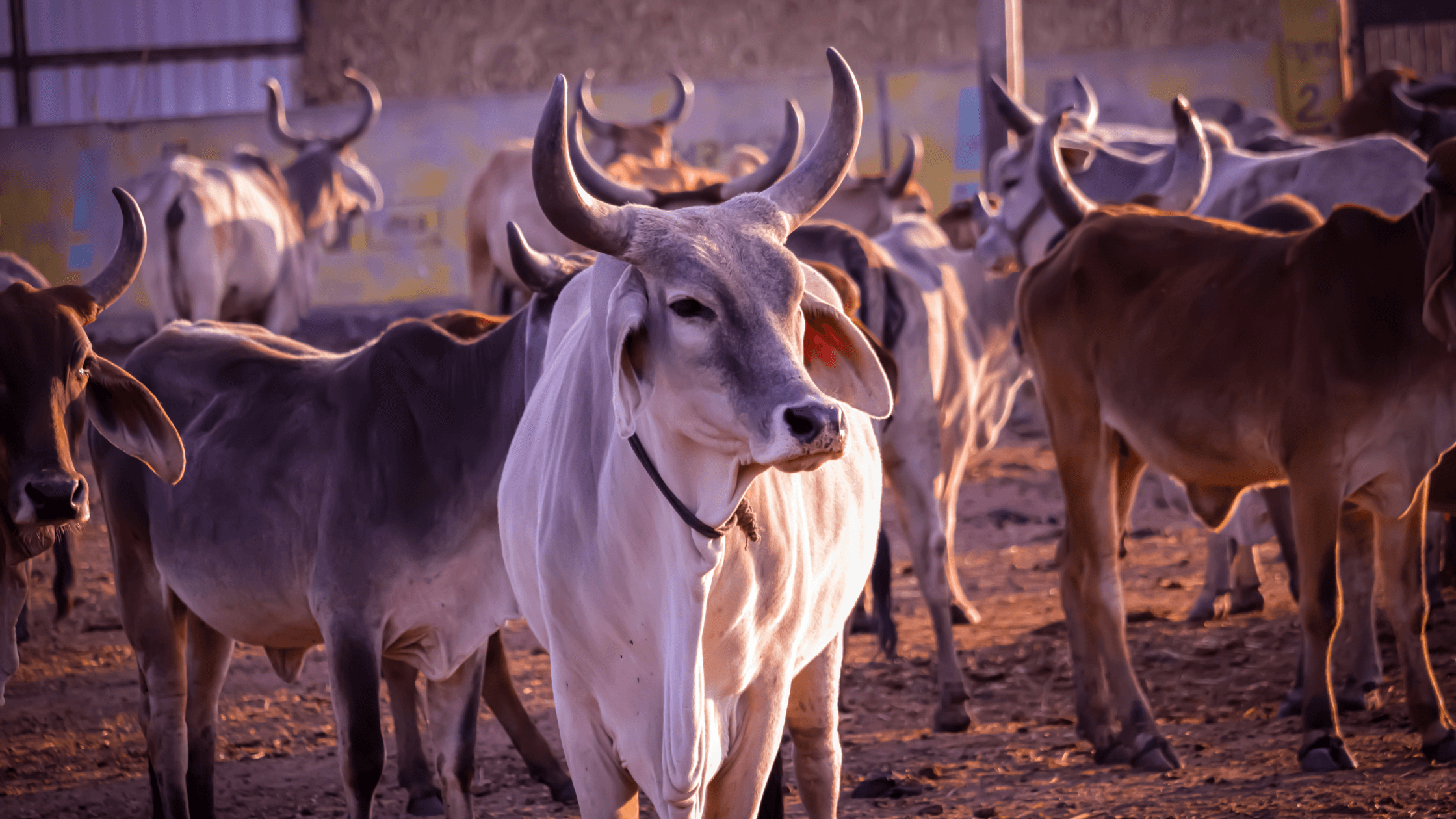The Reverence for Cows in Indian Culture
Cows have been revered and protected in India for centuries, symbolizing more than just an animal within Indian society. Considered sacred, they embody cultural, religious, and economic values that have deep-rooted significance in Indian history. Understanding why cows are sacred in India provides insight into the spiritual and ethical beliefs that influence everyday life, especially among followers of Hinduism, Jainism, and Buddhism. In this article, we explore the many reasons behind the cow’s sacred status in India, covering its religious symbolism, economic role, and cultural importance.
1. The Religious Significance of Cows in Hinduism
In Hinduism, cows are deeply respected as they are associated with various deities and symbolize non-violence, generosity, and motherly qualities. Kamadhenu, the wish-fulfilling cow in Hindu mythology, is believed to grant prosperity and nourishment. Additionally, Lord Krishna is depicted as a cowherd, emphasizing the close bond between the divine and cows.
- Symbol of Non-Violence: Ahimsa, or non-violence, is a fundamental principle in Hinduism. Cows embody this value as they are peaceful and provide without taking.
- Representation of Motherhood: The cow is seen as a “mother” in Indian culture, often referred to as Gau Mata (Mother Cow), due to its nurturing qualities and role in sustaining life.
2. Cows in Jainism and Buddhism
Both Jainism and Buddhism emphasize non-violence and compassion toward all living beings. In Jainism, protecting and caring for cows is considered an act of mercy, aligning with the religion’s core values. In Buddhism, although cows are not worshipped, they are treated with respect, especially in regions with a strong Buddhist presence like Ladakh and Sikkim, where they are appreciated for their contributions to the community.
- Jainism’s Commitment to Non-Violence: Followers of Jainism are strict vegetarians and hold a strong commitment to ahimsa, making the cow’s protection a part of their lifestyle.
- Buddhist Values of Compassion: Cows are valued in Buddhist communities, symbolizing simplicity and service to society without exploitation.
3. The Economic Importance of Cows in Rural India
Cows have significant economic value in rural India, where they contribute to the livelihood of millions. They are an essential source of dairy products, fuel, and fertilizers, making them valuable assets for agricultural communities. Cow dung is commonly used as an eco-friendly fertilizer, while biogas from cow dung serves as a sustainable energy source.
- Dairy Production: Milk from cows provides income and nutrition, particularly in rural areas where dairy farming supports families economically.
- Fertilizer and Biogas: Cow dung is a valuable resource for organic farming, providing natural manure and contributing to sustainable agriculture.
4. Cultural Symbolism: Cows as a Part of Indian Identity
The cow represents India’s agrarian roots, embodying the country’s relationship with the land, agriculture, and nature. In festivals and rituals, cows are often adorned, worshipped, and paraded as symbols of prosperity and purity. For example, during Govardhan Puja, cows are decorated and honored as a part of Diwali celebrations, and in Tamil Nadu, the Mattu Pongal festival is dedicated to cows and bulls.
- Festivals and Rituals: Festivals like Govardhan Puja and Mattu Pongal reflect the cultural reverence for cows, emphasizing gratitude and harmony with nature.
- Rituals and Blessings: In traditional Hindu weddings, cows are blessed as part of rituals, symbolizing prosperity and stability in marital life.
5. The Role of Cows in Indian History and Folklore
Throughout Indian history, cows have been regarded as symbols of wealth and status. Ancient texts like the Rigveda mention cows as a source of prosperity, and they were often given as gifts in ancient India. Kings and warriors considered cows to be valuable possessions, and protecting them was seen as an honorable duty.
- Historical Wealth Symbol: Cows were considered wealth in ancient India, representing status and prosperity.
- Sacred Texts and Stories: Texts like the Rigveda and epics like the Mahabharata highlight the role of cows in Indian society and their sacred status.
6. Ethical and Scientific Reasons for Cow Protection
The protection of cows also has ethical and scientific bases. Cow’s milk is a crucial source of nutrition, especially for vegetarians, and its products (like ghee and curd) are highly valued in Indian cuisine. Additionally, cow dung is believed to have antibacterial properties, often used in rural areas for cleaning and maintaining hygiene.
- Nutritional Value of Dairy: Cow’s milk and dairy products provide essential nutrients, especially in regions where plant-based diets are prominent.
- Scientific Use of Cow Dung: Cow dung is valued for its natural properties, being used in rural homes for disinfecting floors and as a natural pesticide in farms.
Conclusion: A Symbol of Spirituality, Sustainability, and Respect
The reverence for cows in India is a complex and multi-dimensional concept that transcends religion, encompassing history, economics, culture, and ethics. Seen as symbols of sustainability, spirituality, and motherly love, cows have a unique place in Indian society. Understanding why cows are sacred in India reveals a deep connection between people and nature, promoting values of compassion, gratitude, and respect for all living beings.
Whether in rural villages or urban cities, the cow remains a revered entity, representing India’s cultural and spiritual heritage. This sacred status continues to inspire reverence, reminding people of the values that bind society to nature and each other.





